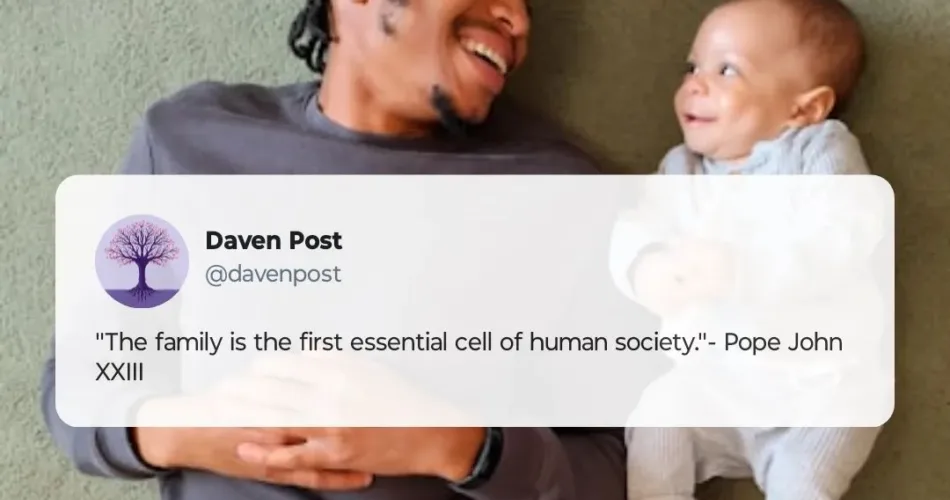The family, often called the “first essential cell of human society,” holds a unique position as the cornerstone of all human interaction and development. This metaphor, coined by Pope John XXIII, underscores the family’s fundamental role in shaping individuals and, consequently, society as a whole.
The Family as the Foundation
Families are where individuals first learn the basic principles of life, such as love, trust, respect, and responsibility. They serve as the primary socializing agent, teaching children cultural norms, ethical values, and social skills. These early lessons influence how individuals interact with the broader community and contribute to its development.
A Source of Stability
The family provides emotional, financial, and moral support, acting as a safe haven in times of crisis. This stability is essential for personal growth and mental health. Societies with strong family structures often see greater social cohesion, reduced crime rates, and enhanced well-being among their members.
Generational Impact
Families are the bridge between generations, transmitting traditions, knowledge, and cultural heritage. Through parenting and caregiving, families ensure that societies retain their identity while adapting to modern challenges. They also instill a sense of belonging and continuity, which fosters a deeper connection to community and nationhood.
Challenges to the Family Unit
Modern societies face various challenges, such as economic pressures, work-life imbalances, and changing cultural norms, which can strain family dynamics. Despite these challenges, the family remains a resilient institution, adapting to different forms, whether nuclear, extended, or blended. This adaptability reflects its enduring importance as a social unit.
The Broader Implications
Strong families create strong communities, which in turn build robust nations. Policymakers and communities that invest in family welfare—through education, healthcare, and social services—often witness sustainable development and harmony.
In summary, the family is more than a personal support system; it is the microcosm of society. By fostering love, discipline, and resilience, families shape individuals who contribute to the greater good, ensuring the survival and flourishing of human civilization.
